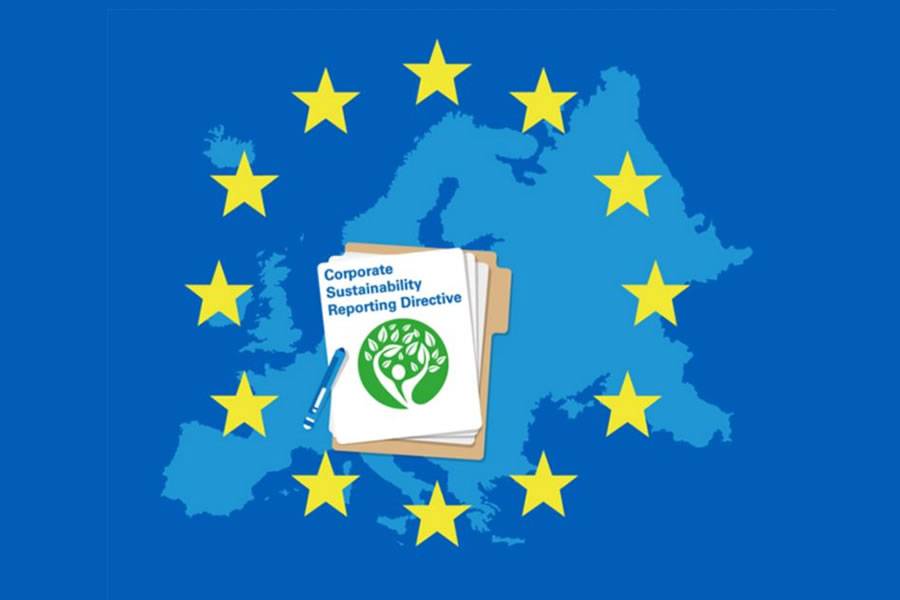How will CSRD standards shape the future of the EU?
- 10-02-2023
- Business
- Canarian Weekly
The Corporate Sustainability Reporting Directive provides a new standard for public reporting that reflects the activities of companies engaged in areas of human activity, such as energy, minerals, finance, healthcare, education, environmental protection, insurance, and human rights protection.
In light of the future, the goal of reporting on the CSRD is to inform investors, stakeholders, and the public about the plans, current state of affairs, and level of progress in the implementation of the policy of the circular economy, environmental protection, and human rights – in the economy of the third millennium.
The strategic objective of CSRD standards accountability is to stimulate companies' investments and economic activities towards a circular economy, green energy, and the protection of the environment within the framework of the comprehensive Sustainable Financing Package adopted by the EU Commission on April 21st, 2021. The CSRD will replace the NFRD (Directive on Non-Financial Reporting) Directive.
The CSRD reporting can be automated with the help of software companies, such as celsia.io, by collecting information, systematizing it, and reporting to receive a certificate.
When does the CSRD come into effect?
The European Commission has approved the Community Directive on Security and Development. It is currently in the process of being implemented into the national legislation of the EU Member States. The CSRD will take effect in the following order:
1 EFRAG published the first draft of the ESRS standards in May 2022.
2 Members of the European Parliament and the EU government agreed on the terms of the CSRD on June 21st, 2023.
3 The first complete version of the ESRS Reporting Standards was submitted to the EU Commission by the European Financial Reporting Advisory Group in September 2022.
4 The EU Commission approved the first CSRD sustainability reporting and disclosure standard in November 2022.
5 The CSRD was approved by the EU Parliament on November 10 and approved by the EU Council on November 28th, 2023.
6 EU Member States adopted the EU directive law and published it in the Official Journal of the EU in December 2022.
7 The CSRD directive came into force in 2023. Reporting companies need to start implementing the ESG reporting capabilities and infrastructure to prepare next year's CSRD reporting.
8 Large enterprises must disclose a sustainability report following the first CSRD reporting standard for the fiscal year 2024.
9 By July 6th, 2024, all EU member states must comply with the CSRD. Article 4 of the CSRD comes into force on January 1st, 2024.
10 EU SMEs will use a reporting system designed for small businesses to launch their CSRD reporting in 2026.
Companies must plan and implement their CSRD compliance approach by 2023, in order to be ready for the reporting cycle starting 2024. The EU Commission will penalize businesses that do not comply with the CSRD. As required by the Commission under the Directive, such companies will be subject to financial sanctions. The CSRD planning horizon is 2050.
The criteria under which companies fall under CSRD reporting:
1 Companies that are already under the jurisdiction of the NFRD must start reporting for the fiscal year 2024 in 2025.
2 Companies currently outside the jurisdiction of the NFRD must begin reporting in 2026 for the fiscal year 2025.
3 Small credit institutions, captive insurance companies, and listed SMEs are due to start reporting in 2027 for their 2026 financial year.
4 International companies with a net turnover of more than €150 million in the EU should start reporting in 2029 for their 2028 financial year.
Are companies outside the European Union subject to the CSRD reporting requirements? Yes. The CSRD requires certain non-EU companies to disclose relevant information if such companies have assets and branches in the EU. The CSRD was approved by the EU Parliament on November 10th and approved by the EU Council on November 28th, 2023.
1 EU Member States adopted the EU directive law and published it in the Official Journal of the EU in December 2022.
2 The CSRD directive came into force in 2023. Reporting companies need to start implementing the ESG reporting capabilities and infrastructure to prepare next year's CSRD reporting.
3 Large enterprises must disclose a sustainability report following the first CSRD reporting standard for the fiscal year 2024.
4 By July 6th, 2024, all EU member states must comply with the CSRD. Article 4 of the CSRD comes into force on January 1st, 2024.
5 EU SMEs will use a reporting system designed for small businesses to launch their CSRD reporting in 2026.
How will CSRD standards change the future of the economy, society, and the environment?
Money is the engine of the economy, so finance determines which sectors of the economy will grow in which direction. Since the criteria for CSRD reporting are annual turnover of more than 40 million euros (for affiliated non-residents) and assets of more than 20 million euros, the CSRD regulation includes sectors such as mining resources, healthcare, education, and banking (insurance, investments, etc.).
CSRD standards should make non-commercial, but sensitive information about the activities of reporting companies available. This information helps to collect statistical data on the direction of financial flows. Public influence aims to ensure that accountable companies direct their finances, and therefore their activities, towards developing a circular economy, renewable energy, and high standards of human rights protection.
The ambitious goal of the CSRD project is to achieve zero emissions of harmful substances into the environment by 2050 and a 100% transition to renewable energy sources.
Our partner celsia.io, who is an expert on the CSRD, states that, based on their experience, companies seek help in developing and implementing business software that can automate the generation of CSRD reports.
Conclusion:
Both in terms of economic activity, as well as in the preparation for meeting the CSRD standards, companies need to start planning today. CSRD reports are templates that help unify the workflow within the EU. Compliance with CSRD standards means supporting the EU's eco policy and thus contributing to protecting the environment and high social standards.
To make it easier for companies to switch to new environmental reporting standards, software companies like Celsia.io developed the appropriate accreditation from the EU Commission. Celsia.io developed software that automatically collects non-commercial information for CSRD reporting.
Based on the results of verifying such reports, reporting companies receive a CSRD certificate. The latter can serve as an argument in the image campaign to attract long-term investments.
Other articles that may interest you...
Trending
Most Read Articles
Featured Videos
TributoFest: Michael Buble promo 14.02.2026
- 30-01-2026
TEAs 2025 Highlights
- 17-11-2025































































